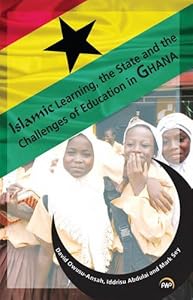Stop by the OISE library and check out these new additions to our collection!
– Exceptionality in East Asia: Explorations in the Actiotope Model of Giftedness [371.9509 E96]: The continual successes of students from East-Asia are confirmed in a variety of international tests of academic achievement and yet, despite this attainment, many scholars have realized that a substantial proportion of these students are also underachieving. Using the actiotope model of giftedness to integrate a broad range of research, this innovative book features a number of chapters written by internationally recognised scholars in a frank and lively discussion about the origins of exceptionality in students from East Asia. With the actiotope model as the theoretical framework, the book distinguishes between trait models of giftedness and systems approaches to exceptionality.
 – Islamic Learning, the State and the Challenges of Education in Ghana [371.07709667 S519i]: This study examines Islamic learning in Ghana over the 20th century. Informed and comprehensive, Islamic Learning, the State and the Challenges of Education in Ghana analyzes governmental attempts to introduce secular education through Islamic schools in a country where Muslims are a religious minority. The policy to bring such schools under the Ghana Education Service (GES) and standardized national examinations threatened the autonomy and proprietorship of the mallams (religious leaders) who had provided private Islamic tuition for generations. Islamic learning provides comprehensive discussions about the implementation of the secularization program in a historical context dating back to the colonial period but extending forward to the present.
– Islamic Learning, the State and the Challenges of Education in Ghana [371.07709667 S519i]: This study examines Islamic learning in Ghana over the 20th century. Informed and comprehensive, Islamic Learning, the State and the Challenges of Education in Ghana analyzes governmental attempts to introduce secular education through Islamic schools in a country where Muslims are a religious minority. The policy to bring such schools under the Ghana Education Service (GES) and standardized national examinations threatened the autonomy and proprietorship of the mallams (religious leaders) who had provided private Islamic tuition for generations. Islamic learning provides comprehensive discussions about the implementation of the secularization program in a historical context dating back to the colonial period but extending forward to the present.
 – International Students and Scholars in the United States: Coming from Abroad [378.1982 I61]: Written by an international team of academics and experienced practitioners, this volume brings together scholarship on international academic migrants to the United States – the world’s top recipient of academic talent. Topics considered include migration patterns, adaptation challenges, and the role that international students and faculty play in broader internationalization and diversity agendas within US higher education. Past understandings of “brain drain” are insufficient to understand the transnational and often multi-directional flows of academic migrants today. Instead, a more nuanced understanding of their migration patterns and decision-making is essential if the opportunities presented by these cross-border flows are to be realized.
– International Students and Scholars in the United States: Coming from Abroad [378.1982 I61]: Written by an international team of academics and experienced practitioners, this volume brings together scholarship on international academic migrants to the United States – the world’s top recipient of academic talent. Topics considered include migration patterns, adaptation challenges, and the role that international students and faculty play in broader internationalization and diversity agendas within US higher education. Past understandings of “brain drain” are insufficient to understand the transnational and often multi-directional flows of academic migrants today. Instead, a more nuanced understanding of their migration patterns and decision-making is essential if the opportunities presented by these cross-border flows are to be realized.
These and other new books are all available on the New Acquisitions shelf on the ground floor of the library.
